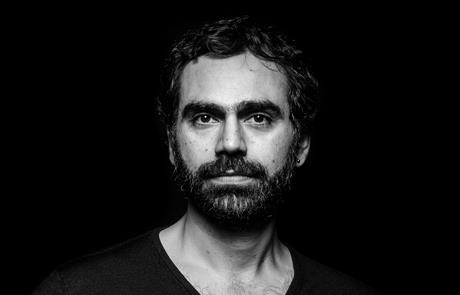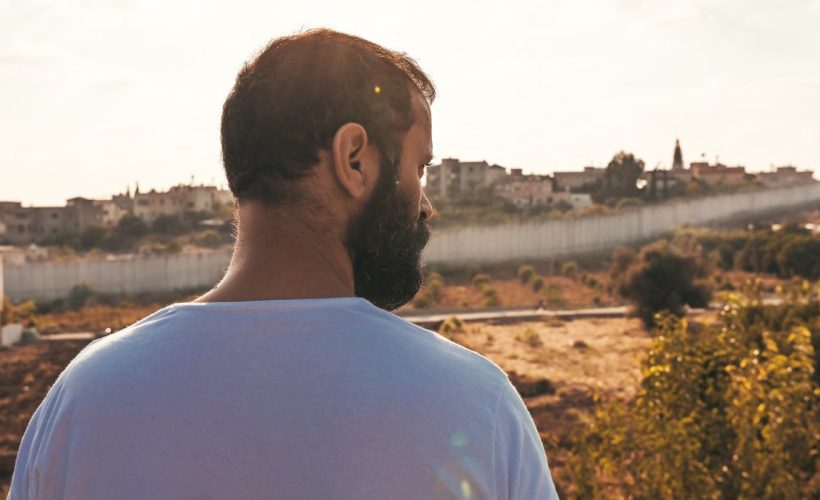Society
4.10.2019
Citerne, a new reservoir for contemporary artistic discourse in Lebanon

Positioning Lebanon and the Middle East on the map of international contemporary dance stage is the mission set by the lebanese choreographer and dancer Omar Rajeh 17 years ago, when he founded BIPOD, the first contemporary dance festival in Lebanon. Its latest edition takes place in Beirut from April 4 to 7, 2019. The opportunity to discover an eclectic program with dancers from Iran, Italy or Spain, but especially to inaugurate Citerne, a new multidisciplinary space exclusively dedicated to contemporary arts in the heart of the Lebanese capital.
Designed two years ago as a temporary space, Citerne is now set up in a vast steel structure with a surface of 1000m2, composed of three adjustable rooms according to the needs of the artists. Through this new address, the artistic director of the lebanese dance company Maqamat Dance Theatre, hopes to develop and maintain the Lebanese contemporary arts scene, connecting it to artists from around the world. He talked to us about the status of arabic contemporary artistic scene today.
What was the motivation when you created BIPOD, the first contemporary dance festival in Lebanon?
For me it was a natural process. I trained in Lebanon and continued my studies in England. When I returned to Beirut, the scene around contemporary dance did not exist. So I started to give performances in 2002 that were quite successful. Then, I asked myself what would be the next steps. It was important for me to create something on a larger scale in Lebanon. This is how the idea of the festival came about.
How did this scene evolved today?
The festival is now well established in Lebanon as well as in the region. It is a major cultural event in the country, and not just at the dance level. He has succeeded in creating a regional and international network of dancers and choreographers. Every year, we receive very interesting proposals from artists around the world. I believe that the festival has also managed to influence Lebanese politics on the management of cultural and artistic events, raising structural issues.
During this event, you also propose a serie of talks called Rush of Adrenaline; re-inject life into artistic spaces. What is it about?
We are opening a new cultural and artistic space in Beirut, Citerne, whose goal is to allow the people to train in various disciplines such as dance, theater or music. The purpose of these discussions is to bring a reflexion on how to deal with this space, and manage artistic events without compromising us in the look for fundings and sponsorship.
See also
Al Alaya, an inclusive dance from UAE registered in the intangible cultural heritage of UNESCOCan you introduce us the concept behind Citerne project?
It is an independent and flexible artistic creation and production platform, that will offer various programs such as workshops, courses and events in a variety of artistic forms. It is a free space open to ideas and proposals. It is also designed in a way that it is possible to rent its main hall for corporate events, which will generate incomes that will come back to the events we are producing and to our artists. We are also counting on the tickets sales of the performances as well as the money generated by a small café that will be set up in Citerne.
What are the main difficulties of the contemporary scene in Arab countries today?
I believe that the main challenge is political, because we lack of funds and of capacity for producing artistic events. We need to make governments understand the need to get involved in artistic creation and to support artists. But we are also sorely lacking in infrastructure and time. However, I think everything develops and evolves very quickly, and that’s why we create Citerne, so we can continue to work and do what we love. I do not like to cancel a performance because of simple financial considerations, so we try to adapt to find a balance that allows us to manage the financing and production.
Finally, few words about #minaret, the dance performance you present during the festival?
This is our latest creation at Maqamat. It was presented last September at the RomaEuropa festival, followed by a short tour in Bulgaria, Poland and Germany. This work focuses on how we deal with images of violence and the conflicts of the world. Disasters that have arrived in Syria for example, in Palestine or even in New Zealand. How to deal with it? Should we ignore? And continue our lives normally? How to position ourselves against this.? This is the question raised by the #minaret project, which is inspired by the Aleppo minaret. Because beyond its religious connotation, it was a cultural, political and social symbol of the city before its destruction in 2013 by fighting between the Syrian regime and Daesh.
popular

